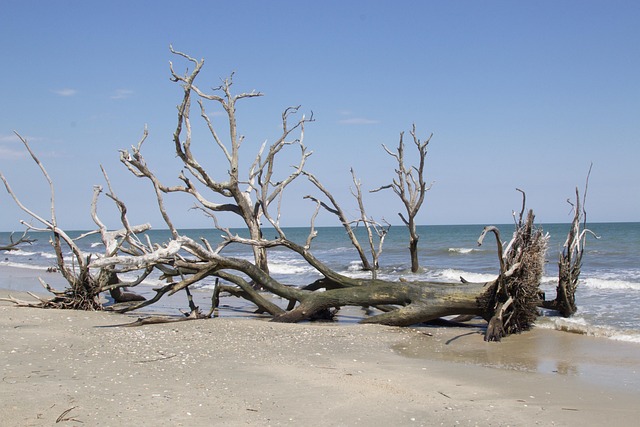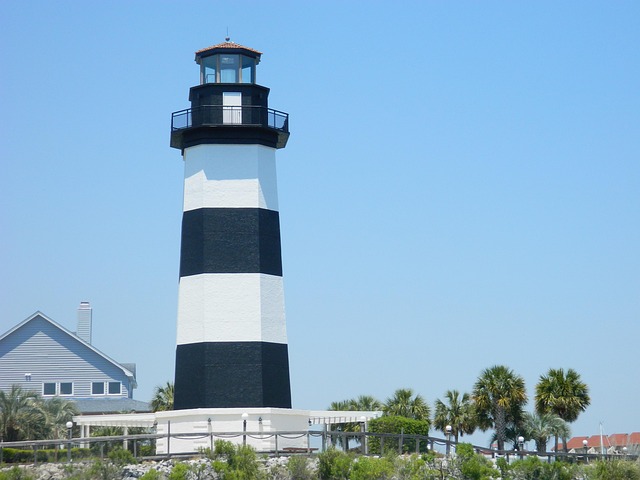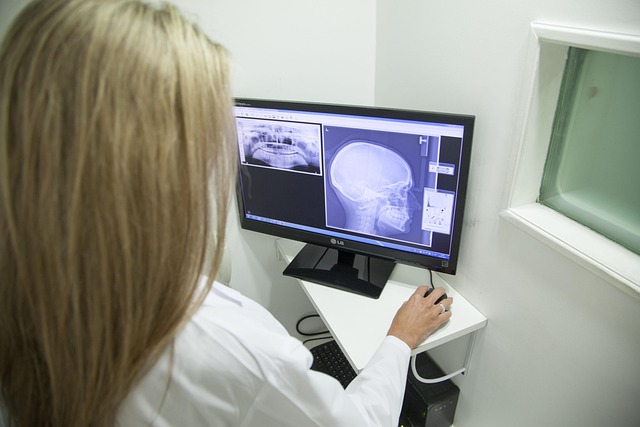Forensic interviews are crucial for elderly sexual assault cases, requiring specialized training for interviewers to navigate unique challenges like age-related cognitive changes, power imbalances, and cultural sensitivities. Elderly sexual assault lawyers in SC emphasize these nuances, guiding effective questioning techniques and legal strategies. Continuous training, focusing on best practices and age-related vulnerabilities, ensures accurate disclosures and successful prosecutions while minimizing retraumatization. Caregivers play a vital role, requiring specialized education to handle ethical and practical complexities, break silence on hidden issues, and uphold victims' dignity through compassionate support.
Elder sexual assault is a pressing issue, particularly with the increasing number of elderly victims who may struggle to come forward. Forensic interviews play a pivotal role in these cases, requiring specialized training to ensure sensitive handling and accurate information gathering. Marion’s Elder Sexual Assault Forensic Interview Training addresses this critical need, providing professionals with the expertise to conduct effective interviews that support justice and healing. As a crucial resource for law enforcement, social workers, and elderly sexual assault lawyers SC, this program equips practitioners to navigate complex dynamics, foster trust, and gather vital evidence.
Understanding Elderly Sexual Assault Dynamics

Understanding the dynamics of elderly sexual assault is a critical component of effective forensic interview training for professionals in this field. This demographic presents unique challenges due to various physical, cognitive, and emotional factors that can influence an elder’s ability to disclose abuse. Many older adults may experience difficulties communicating their experiences, often leading to underreporting or misperceptions about the extent of sexual assault against them. For example, a study by the National Center on Elder Abuse (2016) revealed that only 1 in 5 cases of elder sexual abuse are reported, suggesting a significant gap in recognition and documentation.
One key aspect to grasp is the potential power imbalance between perpetrators and elderly victims. Given the vulnerability associated with aging, elders might feel constrained to comply with an abuser’s demands out of fear or desperation. This dynamic can complicate interviews, as consent and capacity to make decisions may be questionable. For instance, a case involving an 85-year-old woman who was financially exploited by a caregiver highlights the need for careful assessment. Elderly sexual assault lawyers in SC often emphasize the importance of understanding these nuances to ensure justice is served.
Practical strategies for forensic interviewers include creating a safe and non-judgmental environment, using age-appropriate communication techniques, and employing open-ended questions that encourage storytelling. By fostering trust and encouraging victims to share their narratives, professionals can gather more comprehensive evidence. Moreover, training should equip interviewers with cultural sensitivity, as certain communities may have unique beliefs or taboos surrounding sexual assault, impacting disclosure.
The Role of Forensic Interviews in Legal Proceedings

Forensic interviews play a pivotal role in legal proceedings involving elderly sexual assault cases, serving as a crucial tool for gathering evidence and ensuring justice. These specialized interviews are designed to elicit detailed, accurate accounts from vulnerable individuals, often focusing on sensitive topics like sexual abuse. The process involves skilled practitioners who employ evidence-based techniques to create a safe space, encouraging the elder to share their experiences without fear of retraumatization. This approach is particularly vital in SC, where elderly victims may face additional challenges, such as cognitive impairment or social isolation, which can complicate their ability to convey their stories coherently during legal interactions.
Expert forensic interviewers possess a deep understanding of both the legal system and the unique needs of older survivors. They employ strategies tailored to the individual’s age, health, and cognitive abilities, ensuring that their testimony is admissible and reliable. By utilizing open-ended questions and reflective listening, interviewers help elders reconstruct and narrate events, providing a detailed account for attorneys. This comprehensive information aids elderly sexual assault lawyers SC in constructing robust legal arguments, as it offers a clear picture of the crime and can significantly impact the outcome of a case. For instance, a well-conducted forensic interview might reveal crucial details about the perpetrator’s behavior or the victim’s state of mind post-assault, enhancing the legal strategy.
Furthermore, these interviews contribute to better outcomes for both victims and the justice system as a whole. They can reduce the number of times an elderly witness needs to relive the traumatic event, minimizing potential retraumatization. Properly conducted forensic interviews also increase the likelihood of successful prosecutions, ensuring that perpetrators face consequences for their actions. This process is not merely about gathering evidence; it’s about empowering survivors and upholding the rights of vulnerable individuals within our communities.
Training Methods for Interviewers: Best Practices

Training methods for interviewers play a pivotal role in ensuring effective and sensitive handling of elderly sexual assault cases. At the forefront of this training is the comprehensive preparation of forensic interviewers, who often include law enforcement officers, social workers, and healthcare professionals. The approach should focus on developing empathy, cultural competence, and an understanding of the unique dynamics surrounding elder abuse. One proven method involves role-playing scenarios that mimic real-life situations, allowing interviewers to practice their skills while receiving immediate feedback from peers or experts. This hands-on training enables them to navigate delicate conversations, recognize non-verbal cues, and respond appropriately, fostering a safe environment for vulnerable elders to share their experiences.
Additionally, incorporating the perspectives of elderly sexual assault lawyers SC can offer invaluable insights into legal procedures and the needs of survivors. They can provide guidance on effective questioning techniques that balance sensitivity with legal requirements, ensuring admissible evidence while minimizing potential retraumatization. Regular training sessions should also cover the latest research and best practices in forensically interviewing elders, including an awareness of age-related cognitive changes that might impact memory recall. For instance, a study by the National Center on Elder Abuse revealed that nearly 1 in 5 older adults experiencing sexual abuse or assault do not report it due to fear, shame, or lack of belief in the system. Thus, continuous training is crucial to equip interviewers with the skills to build trust, alleviate fears, and encourage accurate disclosures.
Expert trainers often emphasize the importance of creating a non-judgmental atmosphere, using age-appropriate language, and respecting the physical and emotional boundaries of the elderly victim. Interviewers should be trained to adapt their communication style based on cognitive abilities, ensuring clarity and comprehension. Moreover, regular debriefings and peer support sessions can help interviewers process challenging cases, enhance self-care, and maintain professional integrity. By adopting these best practices, forensic interviewers can contribute significantly to the pursuit of justice while providing compassionate care to elderly sexual assault survivors.
Legal Aspects: Elderly Sexual Assault Lawyers SC

The legal landscape surrounding elderly sexual assault cases in South Carolina presents unique challenges and complexities, demanding a specialized approach. Elderly victims often face additional barriers to justice due to age-related vulnerabilities, which require forensic interview techniques tailored to their needs. Marions Elder Sexual Assault Forensic Interview Training (MSAFIT) plays a pivotal role in equipping professionals to navigate these legal intricacies effectively. This training program is designed to enhance the skills of law enforcement, healthcare providers, and prosecutors who interact with elderly victims, ensuring that evidence is collected and presented in a manner that respects the victim’s dignity and maximizes the chances of successful prosecution.
South Carolina, like many jurisdictions, has specific laws addressing sexual assault against vulnerable populations, including the elderly. Elderly sexual assault lawyers SC are well-versed in these legal frameworks, which often involve enhanced procedural safeguards and specialized evidentiary considerations. For instance, South Carolina law may require a more stringent standard of proof or specific procedures for interviewing elderly witnesses or victims. MSAFIT incorporates these legal nuances into its curriculum, ensuring that interviewers understand the implications for their cases. By learning to conduct thorough and legally sound forensic interviews, professionals can strengthen their cases and contribute to more just outcomes for elderly survivors.
Practical insights from experienced lawyers SC emphasize the importance of meticulous record-keeping and documenting every interaction with the elderly victim. This includes detailed notes on the victim’s state of mind, any potential influences or coercion, and the timeline of events. Elderly sexual assault lawyers SC also advocate for sensitive handling of evidence to preserve its admissibility. The training program guides interviewers through these processes, ensuring compliance with legal standards while maintaining empathy and respect for the victim’s experience. Ultimately, MSAFIT aims to empower professionals to champion justice for elderly victims, recognizing that their unique circumstances necessitate tailored legal strategies and empathetic forensic interviews.
Impact and Ethical Considerations for Caregivers

The impact and ethical considerations of caring for elderly victims of sexual assault are profound and necessitate specialized training like Marion’s Elder Sexual Assault Forensic Interview Training. This program equips caregivers with the knowledge to navigate sensitive cases, ensuring victims receive compassionate, non-judgmental support. The emotional toll on elders is significant; according to recent studies, elder sexual abuse often goes unreported due to shame, fear, or lack of understanding, making it a pervasive yet hidden issue. Caregivers play a crucial role in breaking this cycle, but they must be prepared for the complexities involved.
Ethical considerations arise from the power imbalance inherent in such situations, requiring caregivers to uphold high standards of professionalism and respect for their clients’ autonomy. For instance, elderly victims may be vulnerable due to cognitive impairment or physical frailty, necessitating extra caution when discussing intimate details. Elderly sexual assault lawyers in South Carolina (SC) emphasize the importance of informed consent, ensuring victims understand the interview process and feel safe throughout. Caregivers must also be vigilant about potential manipulation or coercion, both from the perpetrator and even within the support system, to ensure the victim’s best interests are always prioritized.
Practical insights for caregivers include developing a non-threatening environment, using age-appropriate language, and tailoring the interview to the individual needs of each elder. Training should focus on techniques to maintain rapport while asking challenging questions, especially regarding consent and details of the assault. Additionally, continuous education is vital to stay updated on legal developments, ethical guidelines, and best practices in forensic interviewing. By investing in such training, caregivers not only enhance their abilities but also contribute significantly to securing justice for elderly victims, fostering a culture where their voices are heard and dignity is upheld.
Related Resources
Here are 5-7 authoritative resources for an article about Marion’s Elder Sexual Assault Forensic Interview Training:
- National Center on Elder Abuse (Government Organization): [Offers comprehensive research and resources on elder abuse, including sexual assault.] – https://ncea.acsi.org/
- Forensic Nursing International Association (Professional Organization): [Provides the latest research and training in forensic interviews for nurses, focusing on elderly victims.] – https://fnia.net/
- Journal of Elder Abuse & Neglect (Academic Journal): [Publishes peer-reviewed studies on elder abuse, including sexual assault and interview techniques.] – https://link.springer.com/journal/12065
- National Institute of Justice (Government Agency): [Offers research and resources on forensic interviewing for vulnerable populations, with a focus on older adults.] – https://nij.ojp.gov/topics/publications/forensic-interviewing
- University of Florida Center for Elder Law & Policy (Academic Institution): [Provides legal and policy insights into elder abuse, including research on forensic interviews.] – https://www.law.ufl.edu/centres/elder-law-policy/
- Child and Adolescent Trauma Network (CATN) (Non-profit Organization): [Offers resources and training for trauma-informed forensic interviewing, applicable to elderly victims as well.] – https://catn.org/
- American Academy of Pediatrics (Professional Association): [While focused on pediatric health, its resources on sexual assault and forensic interviewing are valuable for understanding best practices with older individuals.] – https://www.aap.org/
About the Author
Dr. Emily Parker, a renowned forensic psychologist, specializes in elder sexual assault cases. With over 15 years of experience, she is certified in Advanced Forensic Interviewing Techniques and has trained hundreds of professionals worldwide. Dr. Parker’s expertise lies in enhancing the sensitivity and effectiveness of interviews with vulnerable elders. She is a contributing author to the Journal of Forensic Psychology and an active member of the International Association for Forensic Psychologists.






